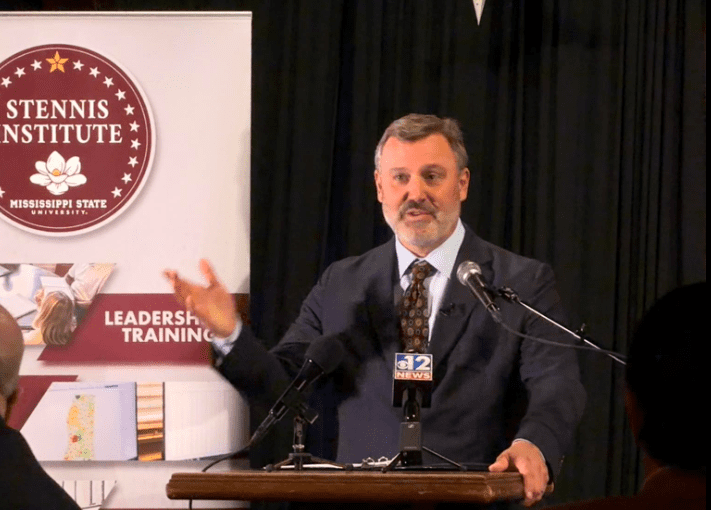
- Reducing administrative costs, eliminating the ESA waiting list, and making public school transfers easier are all priorities as lawmakers return to the Capitol.
Lawmakers adopted a new public education funding formula during the 2024 legislative session. When they reconvene in January, education committee leaders in the House and Senate expect to tackle other high-profile education-related issues.
However, consensus around those topics, especially as it pertains to school choice and potentially reducing the number of school districts in the state, remains uncertain.
Still, House and Senate Education Chairmen Rob Roberson (R) and Dennis DeBar (R) told Magnolia Tribune they expect to see several major pieces of legislation in the 2025 legislative session that begins in January.
Consolidation of School Districts
There are 138 school districts in Mississippi’s 82 counties. Each of those districts employs its own administration, including a superintendent, assistant superintendents, and other district support personnel.
Rep. Roberson believes administrative costs in the state’s school districts are too high. To cut those costs, he wants to reduce the number of districts.
“I would love to get us closer to 82, if that’s possible,” Roberson told Magnolia Tribune. “The number is not as important as getting the school districts that are struggling in a better situation where they can operate and make certain these kids are getting the things that they need.”
Roberson’s idea is to have only one superintendent in each county.
He knows such a change will not happen overnight, saying it will take time, “possibly four or more years to achieve.”
Still, he plans to have those discussions in hopes of leading the House in that direction.
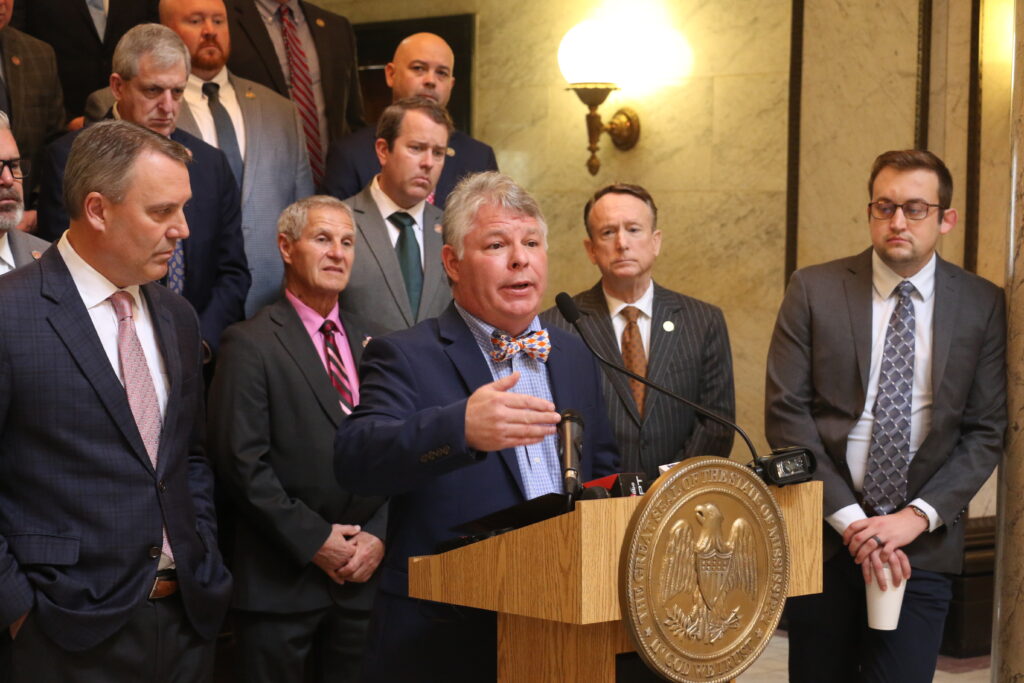
Public School Transfers
Both Rep. Roberson and Sen. DeBar plan to pursue legislation that gives parents more options, making it easier for students to change schools in hopes of providing a better educational environment.
“We talked a lot about this last year,” Roberson said. “When I said I wasn’t going to abandon the idea, we are not. We’re going to try to push forward with it, but only public school to public school.”
The policy of allowing students to transfer between public schools is frequently referred to as “open enrollment.” Under Mississippi’s current open enrollment law, when a student seeks to transfer from one public school to another, the sending and receiving school district’s must both approve the transfer.
Advocates would like to remove the “veto power” of a sending school district to stop the transfer, leaving the decision solely to the receiving district.
While working on a bill to that end, Rep. Roberson said he will ensure the transfer process is fair for all families.
“I don’t want it to be a situation where the school is just intentionally trying to cherry pick,” Roberson explained. “So, there’s going to have to be some guardrails to be certain we’re giving all of our kids an opportunity. And I really am going to be watching this from the special needs side of it, and the poorer children side of it.”
In a speech at a Mississippi Press Association luncheon earlier this year, Speaker Jason White (R) said parents have been asking Republican lawmakers for the option to take their children to other public schools outside their home district.
Senator DeBar’s backing will be key as the legislation moves through the Capitol. While the Senator expressed support, he noted that any changes to the policy would also include transfers involving charter schools.
In a recent interview with Magnolia Tribune CEO Russ Latino, Lt. Governor Delbert Hosemann also voiced support for changes to Mississippi’s open enrollment laws to increase access to public transfers.
Among the issues that will have to be ironed out is the extent to which funding follows the child and ensuring districts remain compliant with federal anti-discrimination laws.
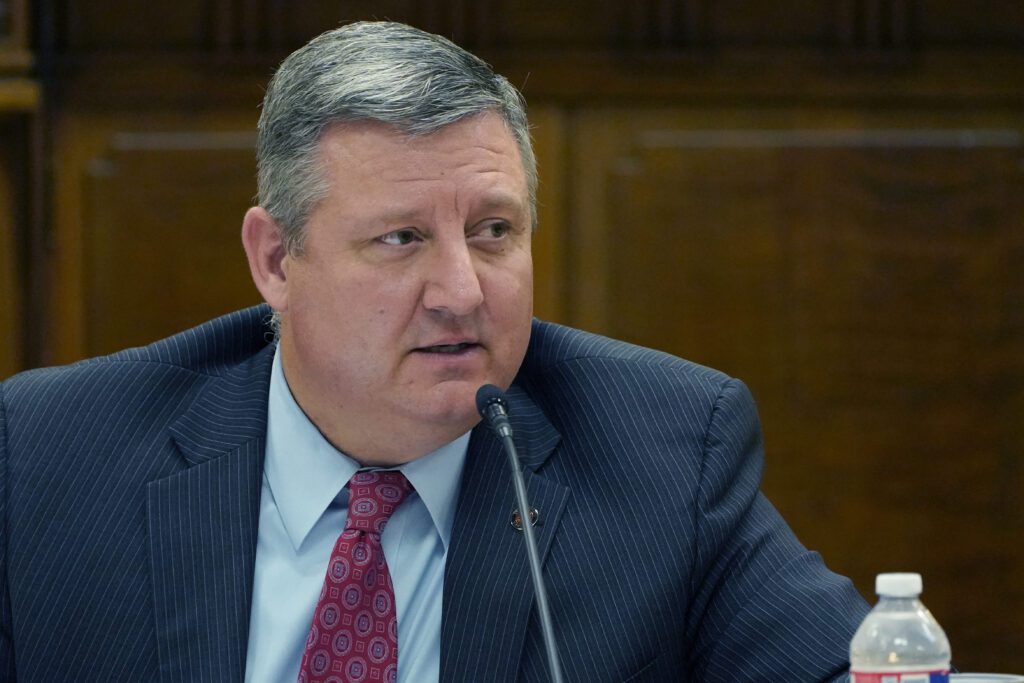
Education Scholarship Accounts
In 2015, the Mississippi Legislature passed the Equal Opportunity for Students with Special Needs Act. The act created education scholarship accounts as a means to help families with special needs children find the best education options for that child. The program currently has a waiting list, a problem Lt. Gov. Hosemann, Sen. DeBar, and Rep. Roberson all want to address.
Lawmakers are considering expanding the program to eliminate the waiting list.
With more than 150 children across the state currently on the Education Scholarship Account program waiting list, DeBar estimates it would cost the state nearly $2 million to fully fund the program and eliminate the wait.
When asked about potential legislation that would provide parents with universal school choice, further expanding the program to all students, DeBar said he does not believe there is enough support in the Senate to make that change.
“I just don’t think there’s a political will for that at this point,” DeBar elaborated. “The reality is, I don’t think we’re there yet, as far as the votes throughout the chamber.”
While DeBar doesn’t see support for full school choice in the Senate, Roberson said Speaker White has tasked him with considering the idea in the House.
“That is going to be a consideration, but I don’t want to suggest that it’s my number one target,” Roberson said.
Instead, Roberson believes small changes to the education system will help further the recent gains Mississippi has seen.
“We have some real positive things that are going on and I’d like to know what’s working and not working,” Roberson added.
Like White, Governor Tate Reeves (R) has publicly voiced his support for more educational freedom in the months leading up to the upcoming session.
States surrounding Mississippi, including Louisiana, Arkansas, and Alabama have all recently passed “universal school choice” programs that create education savings accounts that can be used at either public or private schools. President-elect Trump has voiced support for the idea.
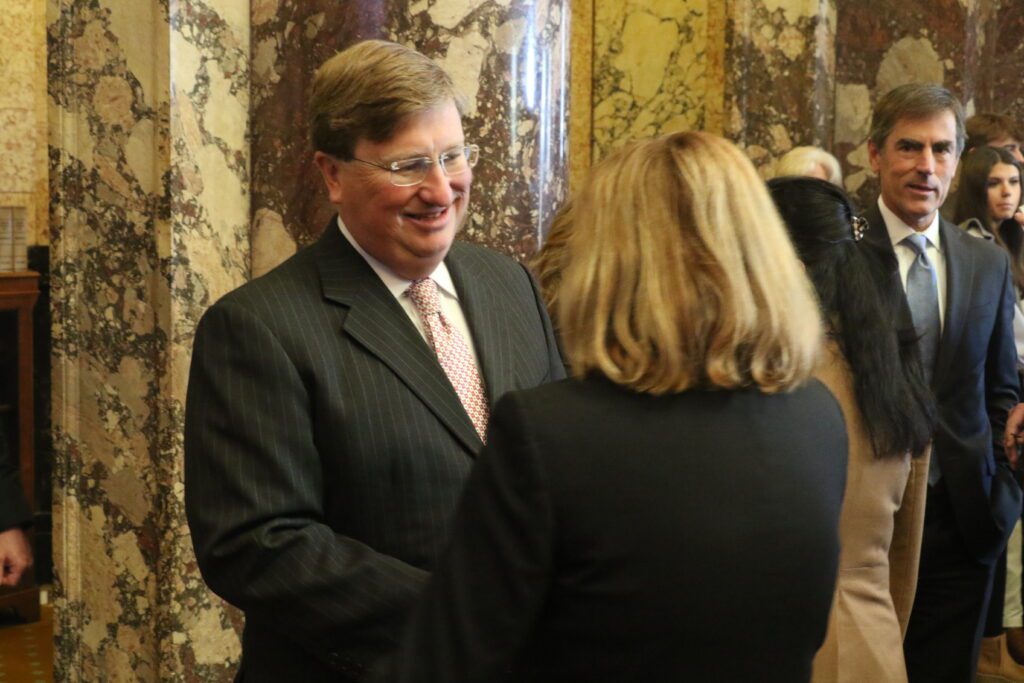
CTE Programs
Career and Technical Education (CTE) programs across the state have been a focus of lawmakers. The goal has been to ensure the younger generation is ready to meet the needs of businesses and industries in today’s Mississippi.
“Of course, one size does not fit all,” Rep. Roberson said. “What may work on the Coast may not work in north Mississippi, so I want to make certain that we’re putting something together that makes sense.”
Reaching that goal will involve working with community colleges, four-year institutions, and the business community to ensure the next generation of employees have the tools they need to succeed.
During a recent Education Committee meeting, representatives with MDE suggested adding 7th and 8th grade level CTE courses to the Mississippi Student Funding Formula’s CTE weights. Information provided by MDE to Magnolia Tribune showed that more than 100 of the state’s school districts offer some sort of CTE course to 7th and 8th graders. Under the current formula, those districts are not eligible for additional state funding because the formula only provides weights for CTE courses offered in grades 9 through 12.
It’s unclear what additional expense would be generated by expanding the CTE weight to middle schools. However, DeBar and Roberson do expect legislation to consider the change.
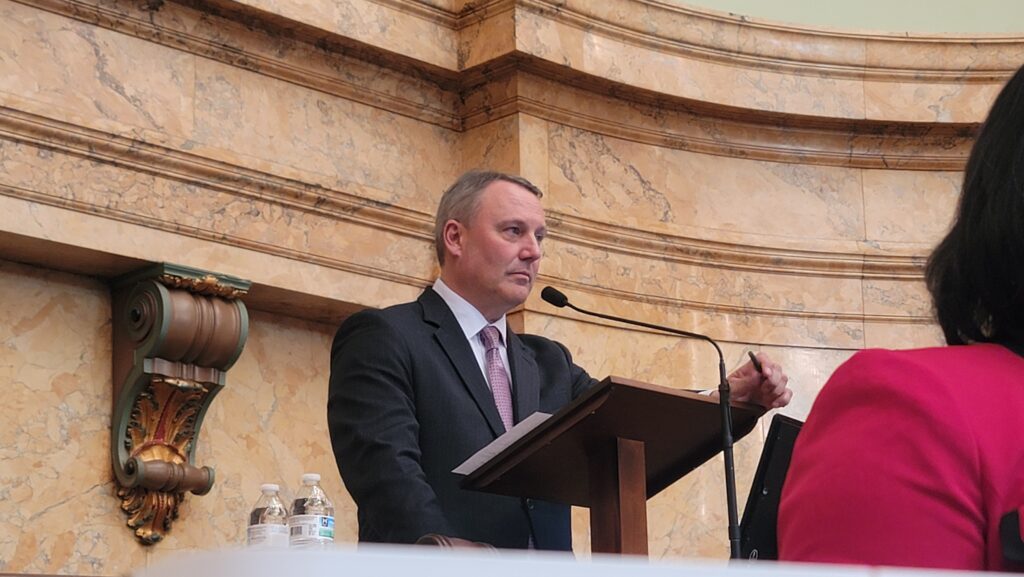
Expansion of Charter Schools
Advocates for charter schools have repeatedly noted the barrier limiting charter schools to those school districts rated D or F as a reason more have not opened in the state. With the recent approval of two new charter schools, Mississippi now has 12 approved charter schools.
Sen. DeBar told Magnolia Tribune that conversations may include adding B or C rated districts to the list in the coming session.
However, Debar said there is a larger problem at hand concerning the performance of charter schools.
“I don’t know if that will happen this year, but it’s something we’re looking at,” DeBar explained about adjusting charter school regulations. “My concern is charter schools have not performed as well as our public schools. But last year they did better.”
Rep. Roberson also has concerns about the performance of charter schools.
“If we’re going to have charter schools in this state, I want them to operate as good as they can possibly be and right now, I don’t know that we’re getting our proverbial bang for our buck on that end,” Roberson elaborated.
One of the changes Rep. Roberson wants to see is for charter schools to offer more services for children with special needs such as dyslexia. He also wants them to have more of a presence in high poverty areas.
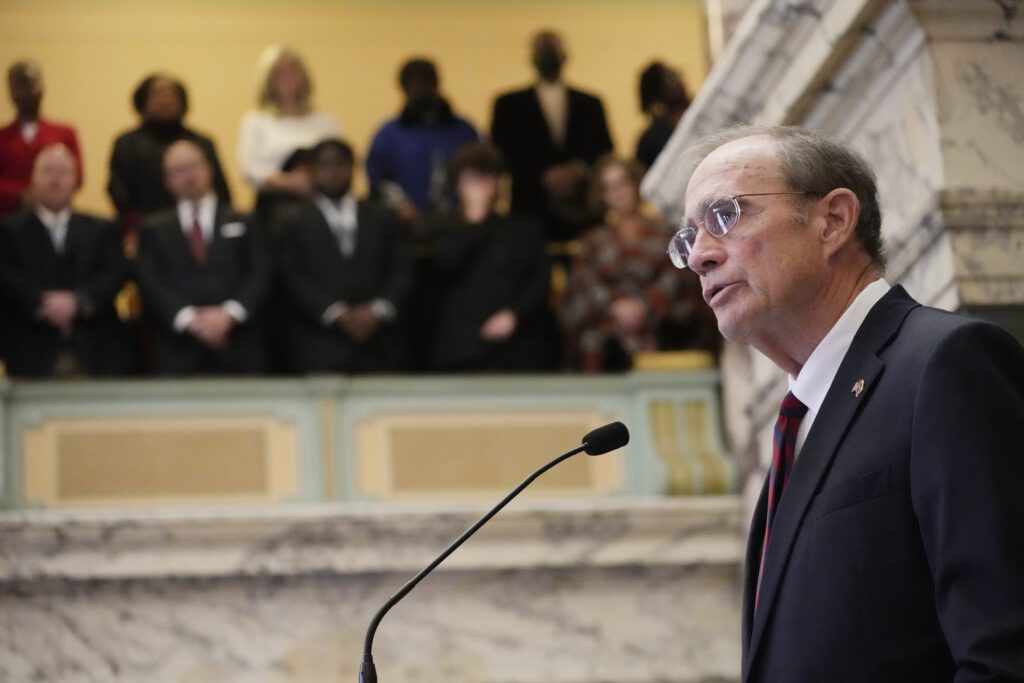
Other Potential Education Legislation
Sen. DeBar plans to reintroduce legislation that will move the state’s school attendance officers under the umbrella of their respective school district, rather than under the Mississippi Department of Education.
Lt. Gov. Hosemann said that change would help address the state’s current issue with chronic absenteeism through increased accountability.
Part of the plan is to increase salaries provided to School Attendance Officers.
“One proposal is to transfer School Attendance Officers from the Department of Education to local districts and increase their salaries, which currently stand at about $24,000,” Hosemann said.
Legislation introduced last year to make the change did not reach the Governor’s desk.
Another topic that has risen on lawmakers’ radars is cell phone usage in the classroom. Students’ use of cell phones has recently been cited as a major distraction by teachers. In response, legislation to recommend district limit or ban their use in schools is expected in 2025.
“We’re working to tackle chronic absenteeism and reviewing the impact of classroom cell phone bans,” Hosemann stated.
Other priorities DeBar said will be addressed in the coming session include finding ways to tackle the teacher shortage, especially in the fields of special education and STEM.
The Legislature could consider legislation would provide teachers with another round of pay raises. DeBar said the increasing cost of insurance teachers experienced must be addressed, either through a stipend or through a pay increase.
“Because with the health insurance rates going up like they are, I’ve got my staff trying to determine if it’s better to help give a supplement for insurance premiums, or a straight $1,000 pay raise for example,” DeBar said.
Under current Mississippi law, taxpayers subsidize the cost of health insurance for the individual state employees, but not for their families. With the subsidy, state employees and teachers pay just $48 a month in premiums for individual coverage, but must pay the full premium of $882 for family coverage of spouses and children.
A bill filed by Rep. Kent McCarty last year would have made the state responsible for 50 percent of the family health insurance premium.
Consideration of allowing homeschool children to participate in sports is another topic on DeBar’s list. He explained that the current plan is to allow homeschool children to participate in sports by joining the team of the school district where they reside.
“So, we’re slowly but surely giving parents more options, but yet trying to protect our public schools and not make their conditions worse,” DeBar said.
One bill introduced last session to address concerns of too much state testing is expected to be approached differently in 2025.
Last session, lawmakers considered using the ACT as a replacement for end of course testing for several subject areas. DeBar now says he is meeting with MDE to find another means to reduce testing, moving away from using the ACT as the replacement option.
The 2025 legislative session begins on January 7th.






